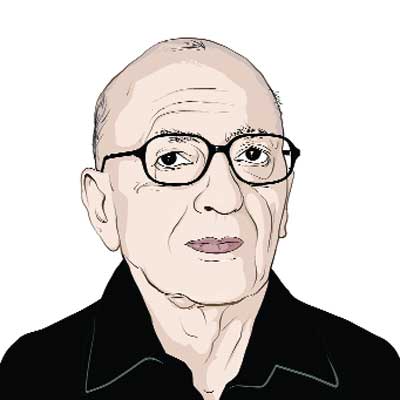Opinion Gaining from her partys losses
Indira Gandhis position was strengthened by the catastrophe that befell the Congress in the 1967 polls
Indira Gandhis position was strengthened by the catastrophe that befell the Congress in the 1967 polls
AS the 1967 general election drew near,Indira Gandhi was painfully conscious that the Syndicate and Morarji Desai were united against her and determined to oust her after the polls. She complained openly that they had denied the Congress ticket to many of her supporters and were parsimonious in allotting party funds to those not kept out. So,following the strategy she had unveiled in December 1966,she plunged into the election campaign to appeal to the people over the heads of the party bosses,pitting her mass popularity against their skill in manipulating the party machine.
She was no stranger to electioneering,having canvassed for Congress candidates in all the three elections held in Nehrus time. But helping her father was one thing,to lead the election campaign as prime minister under siege quite another. She knew that she was no orator and her voice was squeaky. Nor did she have her fathers breadth of vision. He would lecture simple village folk on the need for economic planning and even the reasons for his support to Chinas claim to membership of the UN.
Indira decided,however,to put her best foot forward. She chose to give a miss to high policy and such other themes,and to concentrate on peoples daily problems and other simple matters,trying to speak with as much poise as she could muster. Her main objective,however,was to project her personality to as many people as possible,and to make them feel that no other leader cared for them,especially the poor,half as much as she did. To this end,she travelled across the country like a hurricane.
Everywhere,the popular response was huge. Tens of thousands of people,with a remarkably large proportion of women,waited hours for a glimpse of her. They cheered her even when what she said went above their heads. Of course,in places there was some hostility too,if only because the socialist leader Ram Manohar Lohia,her most trenchant critic,had persuaded the entire range of opposition parties,from the extreme left to the extreme right,to join in their shared objective of defeating the Congress that had ruled the country for too long. At some places,therefore,she was shown black flags. Elsewhere,there were attempts,usually unsuccessful,to disturb her meetings. The worst happened at Bhubaneswar in Orissa,where one of the stones thrown at her injured her nose. But she refused to discontinue her spirited speech,and got her nose operated on only the next morning in Delhi.
Before going to Bhubaneswar,she had visited her constituency,Rae Bareli (earlier represented by her husband Feroze Gandhi,and now by her daughter-in-law Sonia Gandhi),where she declared that all the Indian people were her family and that she was above all divisions in Indian society,such as religion,caste,creed and so on. The crowds chanted that she was Mother India even though she was only 50.
This outpouring of support and affection,however,did not translate into votes. On the contrary,the election results,when they came in,were a big jolt to both her and the Congress party as a whole. The Congress vote was down to 41 per cent from 45 per cent in 1962,when the party had last gone to the polls,under her fathers leadership. A 4 per cent drop may appear small. But given the first-past-the-post system,it had a disproportionate impact on the number of seats. Ironically,until then,this system had worked to the Congresss advantage. But now,in a House of 520,the Congress share plummeted to 283,compared to nearly 350 earlier. It was barely sufficient to keep the government afloat,but the majority was dangerously narrow because of the constant strife between Indira Gandhi and the combination of Desai and the Syndicate. After a broken nose,a slap in the face, said The Times,London.
It was in the states that the true extent of the setback to the Congress became evident. The southern state of Madras (now Tamil Nadu) was lost to a regional party,Dravida Munnetra Kazhagam,and the Congress has never again been able to come to power there. In the north,the Congress faced not disaster but a catastrophe. It lost power in all eight states,giving rise to the jibe that one could travel all the way from Calcutta in West Bengal to Amritsar in Punjab without having to traverse a single inch of Congress-governed territory.
Yet,it is one of those paradoxes India is famous for that,instead of being undermined,Indira Gandhis position was strengthened. The reason was a succession of resounding defeats for stalwarts of the Syndicate. Atulya Ghosh in West Bengal and S.K. Patil in Bombay lost humiliatingly. The fall of Kamaraj,the mighty Congress president and uncrowned king of Madras since the early 1950s,was staggering. He lost not only his state but also his seat.
However,none of this prevented Desai from renewing his claim to the office of prime minister. Sternly,he demanded another vote in the Congress Parliamentary Party. But this time round,the partys self-preservation instinct took over. Numerous senior Congressmen,including some known supporters of Desai,bluntly said that,having been badly mauled at the polls,the party just could not afford another recriminatory struggle for leadership. Desai was unmoved. He argued that he had been cheated out of his due twice,and would not stand for it the third time. Indira was heard saying that in the serious matter of electing Indias prime minister she would not tolerate any fun or games.
That was when the Syndicate that lay shattered got its second wind and rode again. It ruled that a compromise must be imposed on Indira and Morarji,for another leadership contest was unthinkable. Eventually,after hard bargaining,a compromise was reached under which Desai became deputy prime minister in Indira Gandhis cabinet. He was given the finance portfolio that he had held earlier under her father.
The writer is a Delhi-based political commentator




